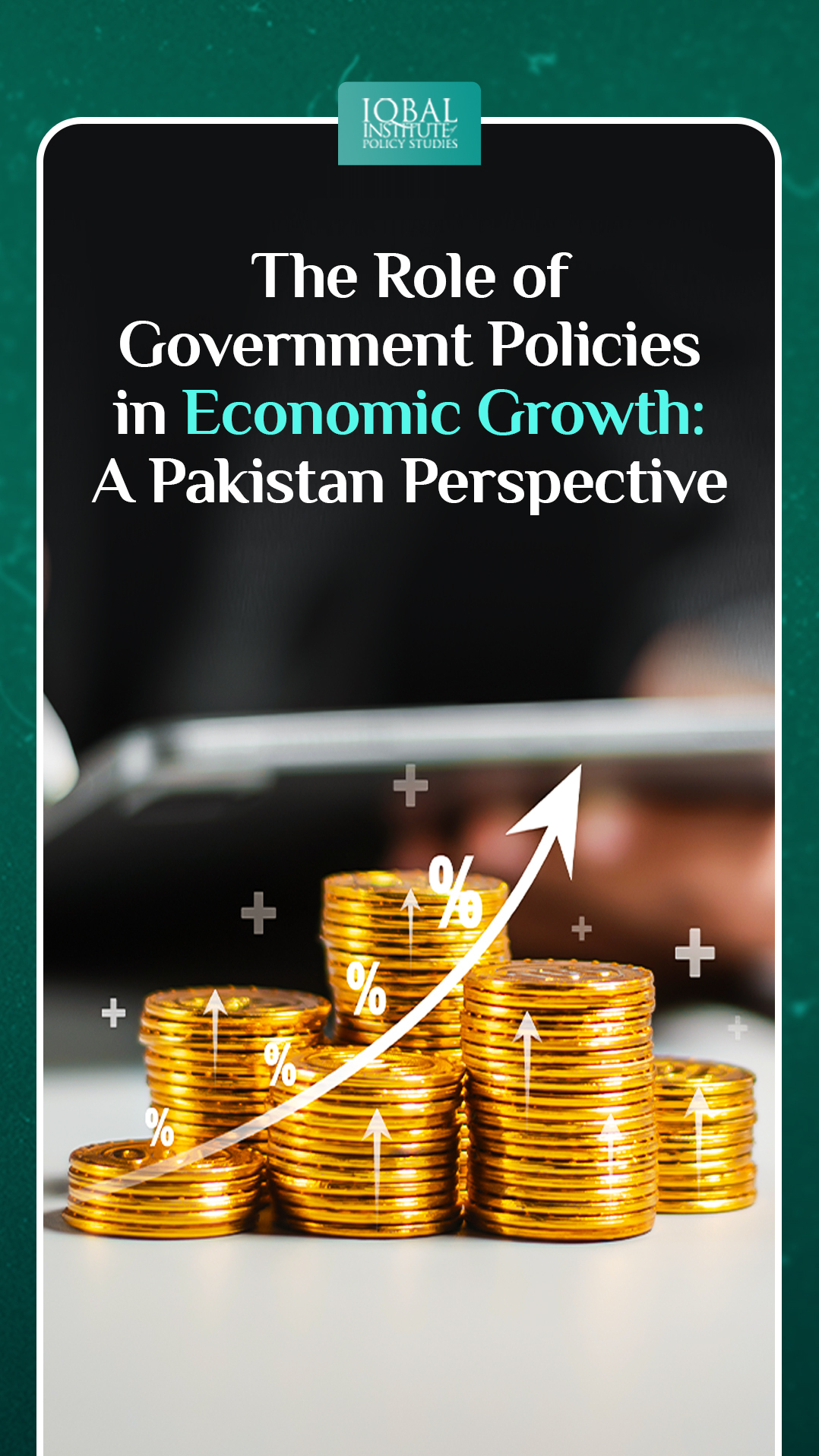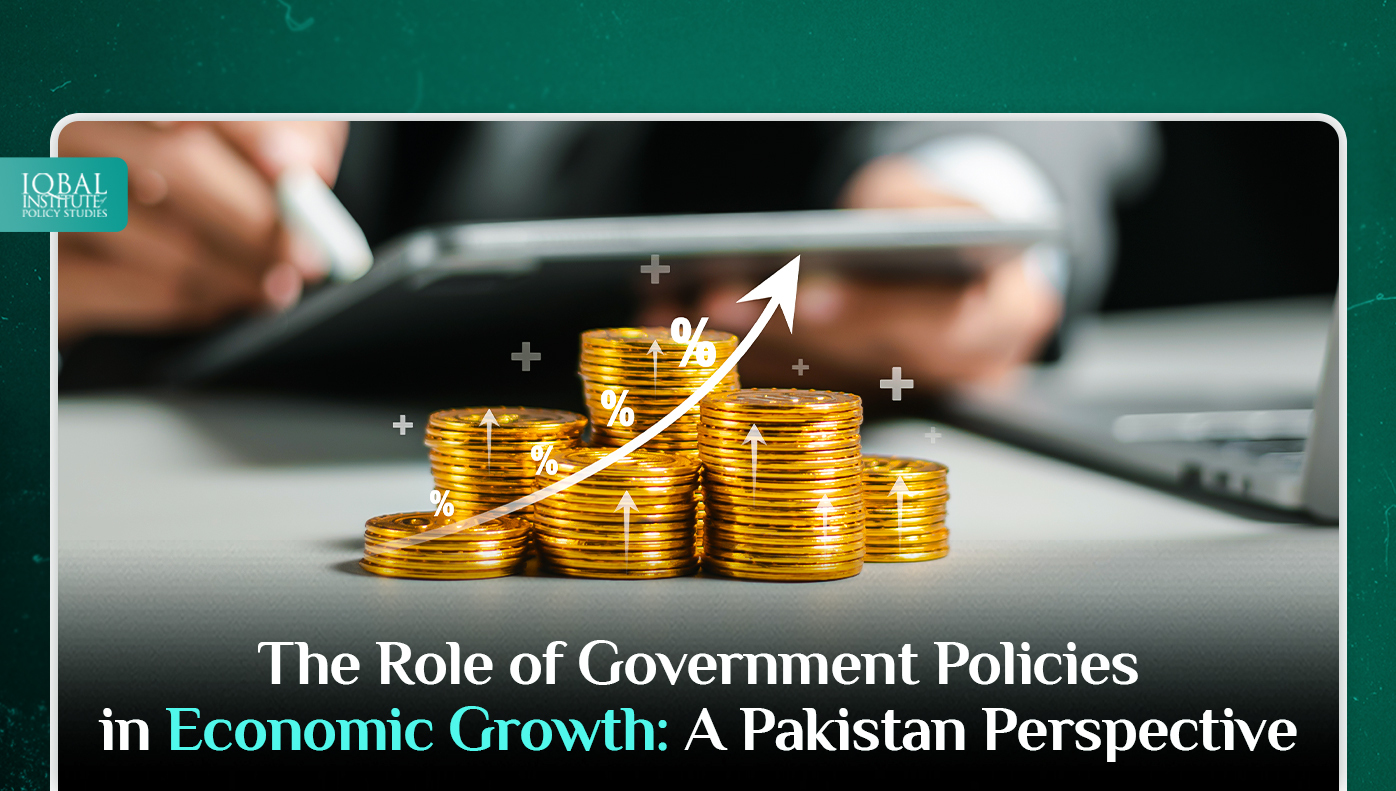In the intricate dance of economic growth, government policies serve as both the conductor and choreographer. They wield the power to guide an economy toward prosperity or plunge it into stagnation. In the case of Pakistan, a nation grappling with myriad economic challenges and opportunities, the role of government policies is paramount. This extended blog will provide a comprehensive exploration of the multifaceted relationship between government policies and economic growth in Pakistan, analyzing key policy areas and their profound impact on the nation’s development.
Fiscal Policies: The Art of Balancing the Budget
Fiscal policies encompass the government’s approach to taxation and spending, making them pivotal in shaping an economy’s trajectory. In Pakistan, fiscal policies have oscillated between periods of austerity and expansion, often in response to pressing economic needs. Striking the right balance is a perpetual challenge. High levels of taxation can stifle economic activity, while excessive government spending can lead to inflation and unsustainable budget deficits.
One of the most persistent challenges in Pakistan’s fiscal policy landscape has been the need to broaden the tax base and enhance tax collection mechanisms. Government efforts, such as the introduction of the tax amnesty scheme and reforms to improve tax administration, are steps in the right direction. However, achieving a fair and efficient tax system that encourages compliance while relieving the burden on the already taxed remains a substantial undertaking.
Monetary Policies: The Guardians of Price Stability
Monetary policies, orchestrated by Pakistan’s central bank, the State Bank of Pakistan, exercise direct control over inflation and interest rates. Inflation is a silent destroyer of purchasing power, and high interest rates can deter borrowing and investment, both of which are critical for economic growth.
The State Bank of Pakistan plays a pivotal role in managing these macroeconomic variables. Effective communication and coordination between fiscal and monetary authorities are essential to ensure a stable macroeconomic environment conducive to growth. Striking the right balance between curbing inflation and maintaining an environment for borrowing and investment is an ongoing challenge.
Trade Policies: Export Promotion and Trade Balance
Trade policies wield considerable influence over an economy’s growth trajectory. For Pakistan, a nation heavily reliant on imports, achieving a more balanced trade relationship is paramount. Export promotion and reducing the trade deficit are key objectives.
One of the most prominent initiatives in this regard is the China-Pakistan Economic Corridor (CPEC). This massive infrastructure project aims to create a network of roads, railways, and energy pipelines connecting China’s western region to Pakistan’s Gwadar Port. Through CPEC and preferential trade agreements with various countries, Pakistan endeavors to boost its exports and reduce its trade imbalance. However, addressing persistent issues like trade barriers, bureaucratic hurdles, and security concerns is necessary to fully unlock these opportunities.
Industrial and Investment Policies: Nurturing Entrepreneurship and FDI
Nurturing entrepreneurship and attracting Foreign Direct Investment (FDI) are essential for robust economic growth. The government plays a pivotal role in creating an environment conducive to business and investment. Policies that reduce bureaucratic red tape enhance the ease of doing business, protect intellectual property rights, and provide investment incentives can encourage entrepreneurship and attract FDI.
Pakistan has made strides in this direction with the establishment of Special Economic Zones (SEZs) and initiatives to streamline the process of setting up businesses. However, sustaining these efforts and ensuring policy consistency are crucial to fostering a vibrant entrepreneurial ecosystem.
Infrastructure Development: Building the Backbone of Growth
Infrastructure development is the bedrock upon which economic growth is constructed. Adequate transportation, energy, and telecommunications infrastructure are vital for businesses to thrive. For Pakistan, overcoming infrastructure deficits is an urgent priority.
Several infrastructure projects, such as the construction of motorways and energy sector reforms, have been initiated to address these challenges. Nonetheless, a sustained commitment to infrastructure development is essential to improve connectivity within the country and enhance Pakistan’s global competitiveness.
Education and Skill Development: Investing in Human Capital
Investing in human capital through education and skill development is a long-term strategy for economic growth. A well-educated and skilled workforce is essential for innovation, productivity, and competitiveness. The government must allocate sufficient resources to improve the quality of education and training programs across the country.
Efforts to enhance access to education, particularly for marginalized populations, and to align curricula with the evolving needs of the job market are critical steps in this direction. Additionally, collaboration between the government, private sector, and civil society can facilitate the development of a skilled workforce ready to meet the challenges of the modern economy.
Social Safety Nets: Reducing Income Inequality
Addressing income inequality and poverty is both a moral imperative and an economic necessity. Government policies that provide social safety nets promote inclusive growth, and target vulnerable populations can help reduce income disparities and stimulate domestic demand.
Initiatives such as the Benazir Income Support Program (BISP) have been instrumental in providing financial assistance to disadvantaged households. Expanding and fine-tuning such programs is essential to ensure that they effectively reach those in need and foster a more equitable society.
Conclusion
The role of government policies in economic growth is a multifaceted and intricate one, and in Pakistan, it carries even greater weight due to the nation’s unique challenges and opportunities. To achieve sustainable and inclusive economic growth, Pakistan’s government must adopt a holistic approach, balancing fiscal responsibility, monetary stability, trade promotion, infrastructure development, human capital investment, and social safety nets.
The successful implementation of these policies, combined with a steadfast commitment to transparency, accountability, and good governance, can set Pakistan on a path toward realizing its immense economic potential. It is a journey that requires continuous collaboration between the government, private sector, civil society, and international partners.
Ultimately, Pakistan’s economic destiny is a collective endeavor. By embracing sound policies and fostering collaboration, Pakistan can overcome its economic challenges and emerge as a dynamic and prosperous nation in the global landscape. The road ahead may be challenging, but with the right policies and unwavering determination, Pakistan can seize its moment and achieve sustained economic growth for the benefit of all its citizens.
This article is written by Radma Nouman. Radma is a research analyst at the Iqbal Institute of Policy Studies (IIPS).



Leave a Reply